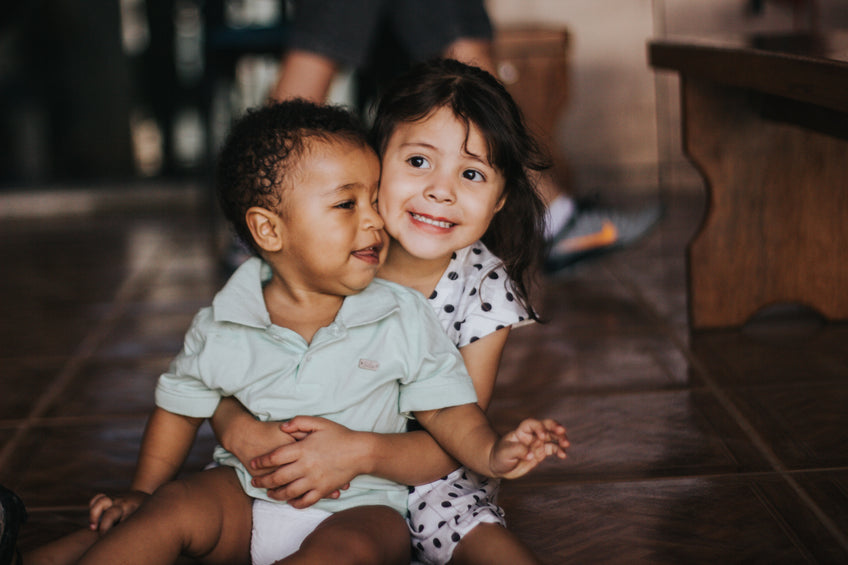Introducing a new baby into your family is a joyous occasion, a moment of expansion and love. But it's also a time of transition, especially for an older sibling.
Adding another member to your family circle is a transformative experience. While you're adapting to the needs of two children, your older one is finding their footing in this new dynamic. This change affects everyone differently, creating a blend of excitement and apprehension.
When considering the dynamics of change, think of your older child's experience as having a cherished routine with a new element thrown into it. It might feel different at first, but with patience, understanding and support from you, this new addition will become a cherished part of their life.
Depending on their age or personality, your older child may not be able to communicate how the changing family dynamic is affecting them. Paying attention to their behaviour can provide insights into their adjustment process. For instance, if your older child occasionally reverts to older habits, it’s often a search for comfort during transitions. Their questions or slight mood variations can indicate they're processing and trying to fit into their evolving environment. As they begin interacting with the baby—be it through curiosity or wanting to assist with baby chores—they're gradually building a bond.

Addressing Common Concerns
Emotions can run high, especially in the initial days. If your older child expresses feelings like jealousy, neglect, or confusion, lend them a listening ear. Rather than dismissing these feelings, it’s helpful to offer assurance and guide them in articulating their emotions.
It’s no secret that newborns command a significant portion of your attention, however committing to dedicated 'older child' time can offer a reassuring balance to a child who was used to being the centre of your world. This doesn't have to be elaborate — a simple bedtime story or a short walk can do wonders. These moments emphasize their undiminished importance in the family. Inclusion can also do a number for both you and your older child. Involve them in baby-related activities like fetching a diaper or singing a lullaby. This participation can help foster a sense of responsibility and connection to their new sibling.
Allow time for an adjustment period. While it is exciting to picture your children being the best of friends, it is completely normal for there to be ups and downs as your whole family adjusts to their newest member.
Effective Strategies to Foster Positive Relationships
Preparing your child before the baby's arrival lays a strong foundation. This can be done through reading stories about siblings, discussing what it means to be an older sibling, or visiting friends with infants. This anticipation helps build a narrative where they feel involved from the start.
Keep an open dialogue as you move through this transition. Talk to your child regularly about how they feel, assuring them their feelings are valid and letting them know they can always come to you with any concerns. This will build trust and an open line of communication.
Being an elder sibling isn’t just about age — it's a role of significance. Highlighting the responsibilities and joys of this new role can make them feel proud and eager. Slowly you’re your child understand they’re not just a big brother or sister; they play the roles of a mentor, protector, and friend.
Encouraging joint activities with the baby can also pave the way for bonding. While the baby might be too young to play, listening to their older sibling narrate a story, pick out clothes, or chat with them nurtures their relationship. And as your elder child grows, celebrating their independence and capabilities not only boosts their confidence but makes them empathetic to the baby’s dependence on you.

Key Insights
Every child's journey towards embracing their role as an elder sibling is individual and special. It's a dance of patience, understanding, and open communication. As they grow, the warmth, guidance, and love they felt during this transition will form the bedrock of a lifelong bond.


